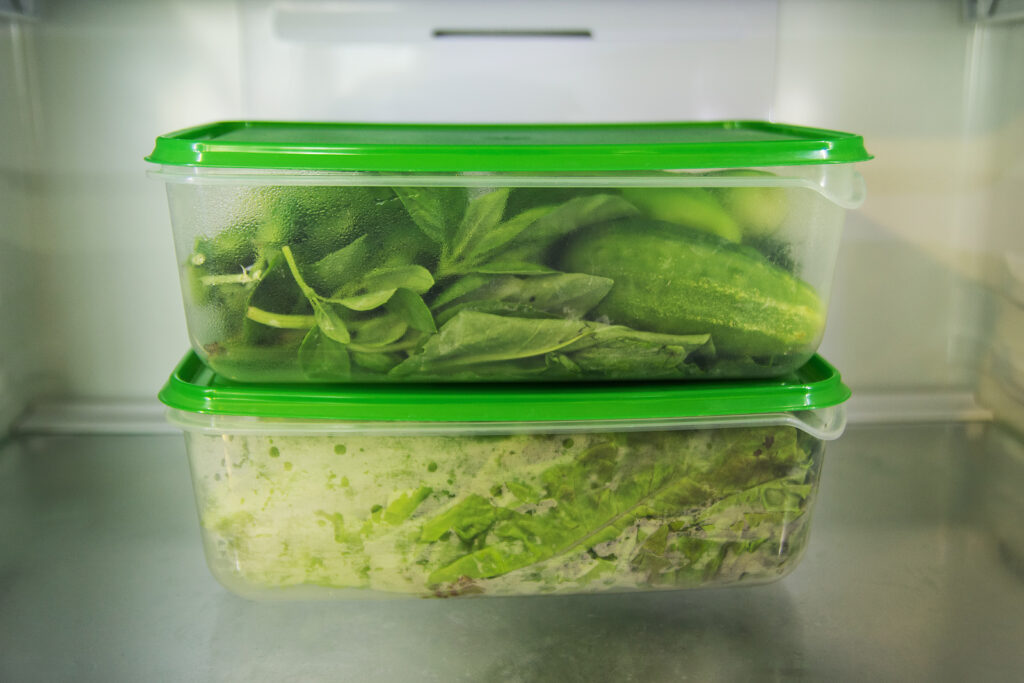
“The polar ice caps are melting!” “The Great Barrier Reef is dying!” These were big headlines 10 years ago. They were also the first trigger of my climate anxiety. Reading the doom and gloom stories about climate change gave rise to an almost paralyzing fear of the future.
I felt helpless and powerless to do anything about it until I came across an article that asked if there was anything easy a person could do to fight climate change. The answer was yes: All I have to do is eat.
Eat… or finish the food on my plate to be precise. Finishing food helps to eliminate food waste, which slashes the amount of greenhouse gas (aka the gas that causes global warming) that we emit. Food waste emits a huge amount of greenhouse gas. If food waste was a country it would be the third biggest emitter of greenhouse gas, after the USA and China. Learning this lit a fire within me to eliminate food waste.
Here are four easy kitchen hacks I’ve embraced that drastically cut down my food waste.
1. Love your leftovers
When my refrigerator is filled with leftovers, what do I do? Rescue my leftovers and turn them into a different meal! My favorite go-to dinner is fried rice. I pretty much throw in any leftovers with day-old rice for a quick and no-fuss meal.
But how else do I get creative with boring leftovers? Using apps like BigOven usually does the trick. It’s like having 100+ chefs present to you their ideas for a creative spin on that boring piece of pork belly.
Using the app is as easy as typing “pork belly” in the search bar and getting a lot of recommendations for breathing new life into your leftovers. My favorite way to use the app is going over to the “Use Up Leftovers” tab and typing in up to three leftover ingredients to come up with a completely new dish.
I never thought I could whip up something delicious using fruit and leftover chicken breast, which is what happened when I typed in pineapple and fried chicken. The app came up with a recipe for Saucy Pineapple BBQ Chicken. It’s a weird combination that surprisingly works.
RELATED: How to Avoid Food Waste: 4 Ways to Keep Your Leftovers Out of the Trash
2. Manage your kitchen
A well-stocked pantry almost always guarantees you’ll forget an ingredient or two that might be past its expiration date. I’m especially guilty of throwing out sauces and mixes I rarely use.
I needed help to make sure nothing falls through the cracks. Now, I use the app Kitchen Pal to keep track of everything in my pantry. Kitchen Pal acts as a virtual kitchen manager. I just type in all the food I buy whenever I go grocery shopping. It creates a virtual “eat me first” bin, shows what’s in the pantry so I don’t buy two of the same item, and suggests recipes that use up what I have on hand. It practically makes my kitchen food waste-proof.
Aside from cutting down on food waste, I’ve also saved money because I end up actually eating what I buy instead of throwing it out!
RELATED: 5 Tips From a Nutritionist for Saving Money on Food
3. Bury your kitchen peels
Don’t throw out your fruit and vegetable peels. Doing that emits heat-trapping greenhouse gas. With a few simple steps, burying your kitchen peels in soil decomposes them while only emitting a minimal amount of greenhouse gas.
The most convenient way to do this is by subscribing to a composting service like the ShareWaste app. Another way is to keep a wooden tray filled with soil to bury the peels in. You can bury the peels in at least (2) two inches of soil. Keep the soil moist to speed up the decomposition process and wait for it to break down completely. It usually takes a month.
RELATED: Going Green-ish: Tiny Changes for a Healthier Earth
4. When hosting a party, take a zero-leftover approach
Here’s my secret to becoming a beloved party host: Send your guests home with a goodie bag that turns your party food into the next day’s delicious meal. Pack all that fabulous party food in a kit consisting of at least a main dish, a dessert, and a side.
This is our family’s default approach whenever we throw a party. Our parties always have overflowing food. But at the end of the night, we send guests home with a small edible token of our appreciation. We’ve always done things this way to be hospitable but later realized that this approach also helps to eliminate food waste.
Food should be eaten, not thrown away. I grew up in a house where an “I love you” is a hot meal after a tiring day. In my eyes, food means love. And I value that love. Could that also be the key to saving the planet?